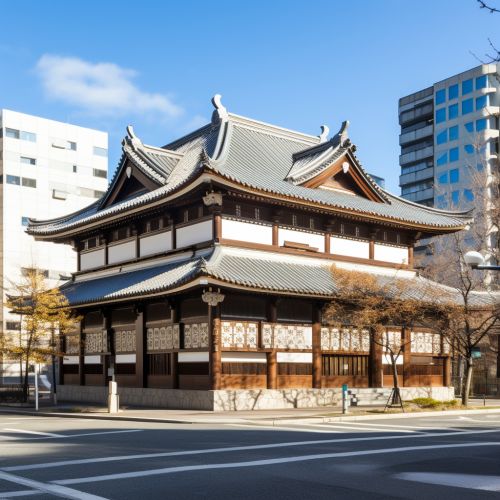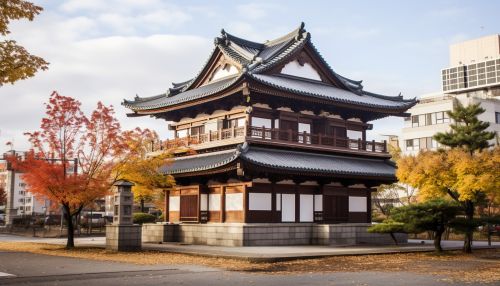Hokkaido Development Commission
History
The Hokkaido Development Commission (HDC) was established in the late 19th century, during the Meiji period, with the primary goal of developing the northernmost island of Japan, Hokkaido. The commission was tasked with the responsibility of managing the vast wilderness that was largely unexplored and underdeveloped at the time. The HDC played a significant role in the modernization of Japan, particularly in the development of Hokkaido's infrastructure, agriculture, and industry.


Role and Function
The HDC was responsible for the overall development of Hokkaido. This included the construction of roads, bridges, and other infrastructure, as well as the promotion of agriculture and industry. The commission also played a significant role in the settlement of Hokkaido, encouraging migration from other parts of Japan and providing support to new settlers.
Infrastructure Development
One of the primary tasks of the HDC was the development of infrastructure in Hokkaido. This included the construction of roads, bridges, and ports, as well as the establishment of communication networks. The commission also oversaw the construction of railways, which played a crucial role in the economic development of the region.
Agriculture and Industry
The HDC also played a significant role in the promotion of agriculture and industry in Hokkaido. The commission introduced new farming techniques and crops, and established factories and other industrial facilities. The development of Hokkaido's agriculture and industry played a crucial role in the economic growth of the region, and contributed to the modernization of Japan as a whole.
Settlement and Migration
The HDC was also responsible for encouraging migration to Hokkaido from other parts of Japan. The commission provided support to new settlers, including financial assistance and resources for farming and other activities. The HDC's efforts in this regard played a crucial role in the settlement and development of Hokkaido.
Legacy
The HDC was disbanded in the early 20th century, but its legacy continues to be felt in Hokkaido today. The commission's efforts in infrastructure development, agriculture and industry, and settlement and migration have had a lasting impact on the region, contributing to its economic growth and development. The HDC's work also played a significant role in the modernization of Japan as a whole.
